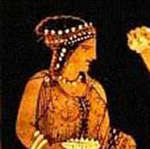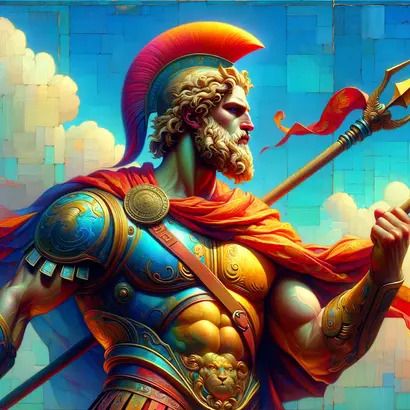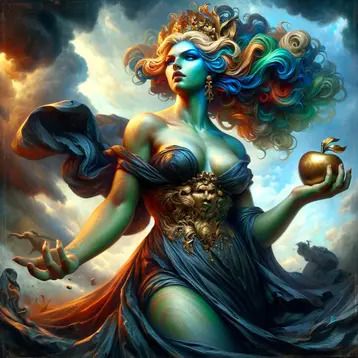
Harmonia
Harmonia was the goddess of concord and harmony in Greek mythology, the opposite of goddess Eris (strife). She was considered the daughter of either Ares and Aphrodite, or of Zeus and Electra. She was married to Cadmus, the founder and first king of Thebes, with whom she had six children; Ino, Polydorus, Autonoe, Agave, Semele, and Illyrius.
The best known story about Harmonia revolves around the cursed necklace that she received on her wedding day. All the gods were invited to the wedding of Cadmus and Harmonia; Cadmus then gave to his wife a robe and a necklace, which he had received either from Hephaestus or Europa. However, the necklace was cursed and brought misfortune to its owner. The necklace was inherited by the descendants of Harmonia, bringing bad luck to all of them.
Harmonia Q&A
Link/Cite Harmonia Page
Written by: The Editors of GreekMythology.com. GreekMythology.com editors write, review and revise subject areas in which they have extensive knowledge based on their working experience or advanced studies.
For MLA style citation use: GreekMythology.com, The Editors of Website. "Harmonia". GreekMythology.com Website, 31 Jan. 2015, https://www.greekmythology.com/Other_Gods/Harmonia/harmonia.html. Accessed 26 April 2024.




